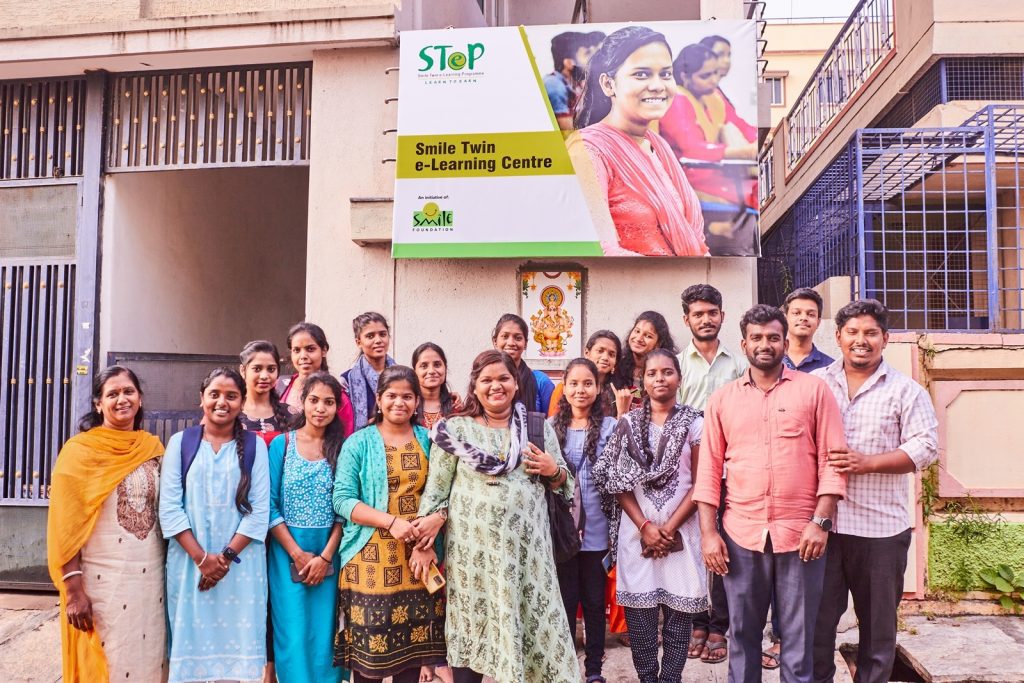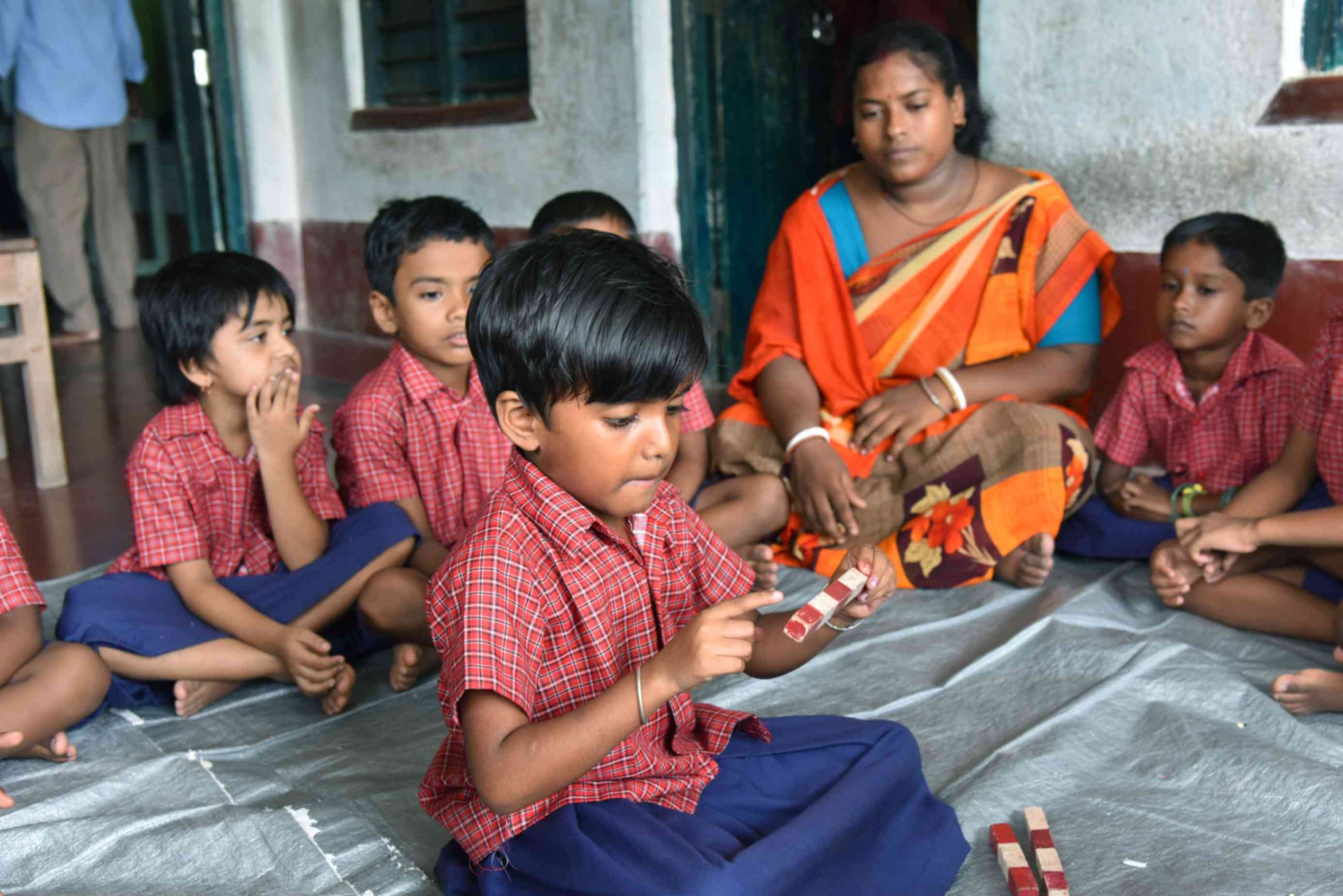For decades, India has explored innovative avenues for education, dating back to radio, television, and now the internet era. Today, as blended learning and AI-driven approaches gain prominence, a transformative revolution in the education sector is on the horizon. This evolution serves a dual objective- firstly, to ensure universal access to fundamental education, and secondly, to build a substantial knowledge repository, leveraging our traditional strengths in Science, Technology, Engineering, and Mathematics (STEM).
India’s Path to Prosperity
As the conversations around the ascend of India to higher global economic ranks become more commonplace, the role of a skilled workforce is pivotal to its big realizations. Various projections indicate that investments in upskilling could potentially bolster the global economy by a big number and elevate its economic prowess by $570 billion by the year 2030. This places skill development at the core of the Sustainable Development Goals (SDGs) laid out by the United Nations, a comprehensive set of global initiatives launched in 2016 with the aim to eradicate poverty, safeguard the planet, and ensure universal peace and prosperity.
India has a young demographic advantage of over 54 percent of its population under the age of 25, but only 62 percent falls within the working-age bracket. An additional influx of 183 million individuals is anticipated into this working-age population by 2050. Consequently, an urgent imperative lies in the skilling and re-skilling of this growing workforce.
If India is to realize its vision of elevating the manufacturing sector’s contribution to the GDP to a good percentage and generating a staggering 100 million jobs, as envisioned by the National Manufacturing Policy, it has no choice but to lay the foundation for a robust pipeline of skilled workers. To make things more concerning, the Global Skills Gap Report highlights the Indian workforce currently grapples with the highest skills gap globally, second only to Brazil. A disconcerting revelation from the National Skills Development Corporation report exposes that a mere 2.3 percent of the Indian workforce possesses formal vocational skills. All these numbers might mean that the youth of India will find themselves devoid of the essential skills needed for gainful employment.
Indian Skill Ecosystem: A Blueprint for the Future
The landscape of skills has been reshaped by Artificial Intelligence, Machine Learning, and more bringing in a new era of work. The contemporary approach of businesses has shifted from a ‘degree-based’ model to a ‘skill-based’ one. Critical skills such as critical thinking, problem-solving, teamwork, collaboration, and time management have ascended in importance, often overshadowing traditional academic degrees.
To confront the pressing skills shortage, India must enhance the quality of education and training, aligning them with the changing demands of the evolving economy. There is a substantial difference between the skills sought by employers and those possessed by job seekers. To bridge this gap, the government needs to foster increased partnerships and collaborations between industry players, educational institutions, and government agencies to drive skill development in emerging technologies.
Notably, there was an almost 50 percent surge in demand for skill-up courses in Tier II and III cities last year. The government has already embarked on several initiatives, including Skill India Pradhan Mantri Kaushal Vikas Yojana National Policy on Skill Development and Entrepreneurship, National Digital Literacy Mission among many others. Moreover, the Companies Act of 2013, now mandates skill development as part of Corporate Social Responsibility (CSR) activities, prompting private organizations to contribute significantly.
It is imperative to blend creative skills seamlessly with technological proficiency to equip the workforce for the challenges of the future. The demand for a workforce that not only masters technology but also harnesses creativity underscores the evolving nature of the Indian skill ecosystem.
Enhancing Employability and Fueling Economic Growth
Over the past two decades, the integration of technology into education has sparked a transformative revolution, rendering learning more accessible and interactive than ever before. Technological advancements, including Artificial Intelligence (AI), Machine Learning (ML), etc. have made the focus apparent on personalized learning experiences.
This shift is a game-changer for several reasons:
- Democratization of Education: Internet penetration, mobile data availability, smartphones, etc. have begun to democratize access to education. The concept of ‘blended learning,’ which combines classroom and online learning, has broken traditional barriers and opened up dynamic avenues for knowledge acquisition.
- Enhanced Learning Outcomes: Studies have shown that students with access to technology in their classrooms tend to perform better academically. Technology, particularly when used effectively by teachers, has the potential to significantly improve learning outcomes.
As India increasingly competes on the global stage, the bar for skill sets is continually rising. To thrive in an interconnected world, Indian professionals must equip themselves with contemporary skills that not only meet but exceed international standards. Upskilling is a strategic move to stay ahead in the global race.
In an evolving job market, employers seek candidates with versatile skill sets that span multiple domains. Upskilled individuals are not only more adaptable but also better equipped to take on diverse roles and responsibilities.
Economically, upskilling is a potent driver of growth. A skilled workforce enhances productivity, fuels innovation, and contributes to the overall development of the nation. In an era where knowledge is power, upskilling empowers individuals to contribute actively to economic progress.
Embracing Emerging Industries and Bridging the Skills Gap
India’s aspirations to excel in emerging industries like information technology, biotechnology, renewable energy, and artificial intelligence hinge on upskilling. These sectors hold tremendous growth potential, and individuals with the right skills are poised to lead the charge.
Upskilling plays a pivotal role in reducing unemployment, and ensuring that individuals are not underemployed in positions that do not harness their full potential.
Empowering Entrepreneurship and Fostering Social Mobility
Upskilling is a catalyst for entrepreneurship. Armed with newfound knowledge and skills, individuals can venture into the realm of entrepreneurship, driving innovation, and creating job opportunities for others.
Moreover, upskilling is a vehicle for social mobility. It breaks down barriers and opens doors to better opportunities for individuals from diverse backgrounds. Access to quality education and upskilling initiatives enables individuals to transcend socioeconomic constraints and realize their aspirations.
Smile Foundation and Upskilling
Smile Foundation believes that the future of the nation lies in a highly skilled workforce leaving no one behind. Our livelihood and skilling program, STeP (Smile Twin e-Learning Programme) is focused on training youth from communities that need special attention due to limited options available to them. The training courses include digital marketing, General Duty Assistance (GDA), BFSI, BPO, and core employability. The program has trained more than 75,000 youth to date with 65% of the trained individuals placed in respectable jobs all across India.
Upskilling is the compass that guides individuals through the ever-shifting landscape of work, enabling them to navigate the future with confidence. As the Indian workforce continues to grow and diversify, upskilling stands as the marker of progress, empowering individuals, driving economic growth, and positioning India as a formidable force in the global arena.









